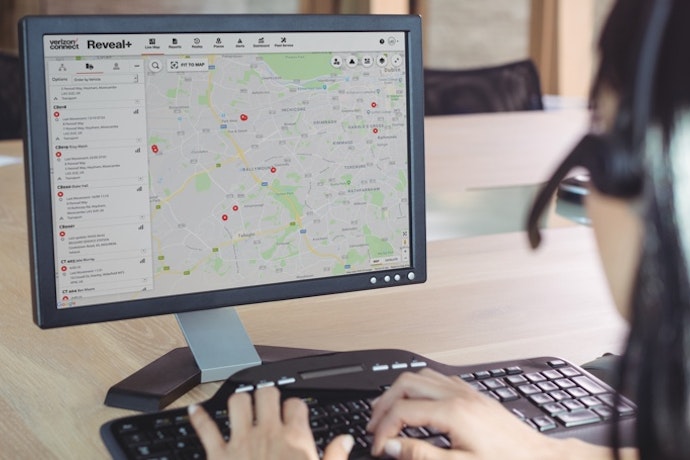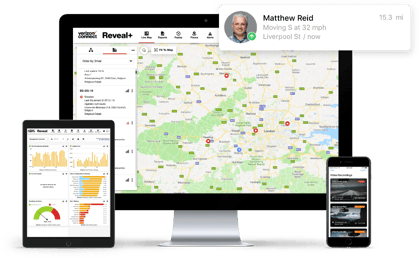9 Secrets to Reducing your Fleet Expenses
As a fleet owner, your day-to-day costs can quickly add up. What you don’t know is there are further hidden, expensive...
Read more
GPS fleet management technology has come a long way since the days of blinking dots on a map. Despite this, many fleet-reliant businesses still use such technology in its basic form.
A modern solution allows business owners and fleet managers to build a fully integrated fleet, eliminate data silos, join up departments and drive greater efficiency and productivity across the board.
As well as monitoring your fleet in near real-time, full integration of your drivers, vehicles, office staff, and technologies affords you total visibility of your entire operation. This visibility is no longer a luxury. It is a necessity. As customers demand greater transparency and faster responses, the ability to access information and react can be the difference between success and failure.
Below are six simple ways that integrating your data, systems and operations can help to improve the way you work.
When you bring together every part of your operation, from your departments to your drivers, your teams are empowered to make smart, fast decisions.
Collect data on everything from driving styles to fuel consumption so that you can make decisions that are data-backed and in line with the realities of running your fleet.
Managing your fleet in this way puts the vital information your teams need at their fingertips, with a wealth of fleet insight only ever a few clicks away.
An integrated fleet doesn’t just make your work life easier, in many cases, your fleet management solution can do the work for you.
Fleet data gathered in one area of your operation, such as time spent on site, arrival and departure time, or number of stops, can be used to automate processes in another.
Time spent on site data, for example, can be used to populate timesheets and improve the speed and accuracy of your invoicing process.
Connecting your people, vehicles, equipment and work allows for intelligent job management from dispatch to delivery.
Plan daily routes based on job and vehicle information, as well as road conditions and site information. Navigation and job information, including access codes, delivery instructions and customer notes, can be sent directly to the driver’s device.
Site and job completion information, such as customer signatures and work photographs, can then be uploaded to a central portal to avoid protracted back and forth.
Integrating fleet and vehicle information into your maintenance process can help to reduce breakdowns and downtime and may potentially increase the life of your vehicles.
Data gathered on mileage, part lifespan and engine on hours can be set to trigger timely alerts, so that routine servicing and repairs take place as required.
These alerts can be sent to any member of your team, or to a third-party such as your authorised repairer.
There are many ways that data from across your fleet may be harnessed to help improve fuel economy and, in turn, reduce to your fuel spend.
Information on speeding, idling and harsh driving, all of which can impact fuel economy, can be used to coach drivers into more efficient habits. Location data can also be used to monitor personal and unauthorised use to further reduce fuel consumption.
On top of this, integrating your fuel card system with your fleet data allows you to easily spot anomalies, such as overfilling, to reduce fraud and waste.
Comprehensive fleet management systems allow for the integration of other technologies such as dashcams and in-vehicle video.
A modern integrated video solution gives you eyes on the road and allows you to promote vehicle and driver safety, boost security and increase efficiency across your organisation.
With video integration in place, you can review harsh driving in context, protect your company reputation, gather vital evidence for insurance claims, mitigate risk and potentially lower your insurance premiums.
---
Above are just some of the ways integration can help to improve the agility, efficiency and productivity of your fleet operation. Click here to speak to one of our fleet specialists today and see the benefits for yourself.
Tags: All




Find out how our platform gives you the visibility you need to get more done.
As a fleet owner, your day-to-day costs can quickly add up. What you don’t know is there are further hidden, expensive...
Read moreVerizon Connect Reveal tracks the fleet data that can have a big impact on your business. These are things like where...
Read moreAt Verizon Connect, we can only provide the highest possible level of service to fleet managers and business owners by...
Read moreReveal tracks the fleet data that can have a big impact on your business. These are things like where your vehicles are...
Read more